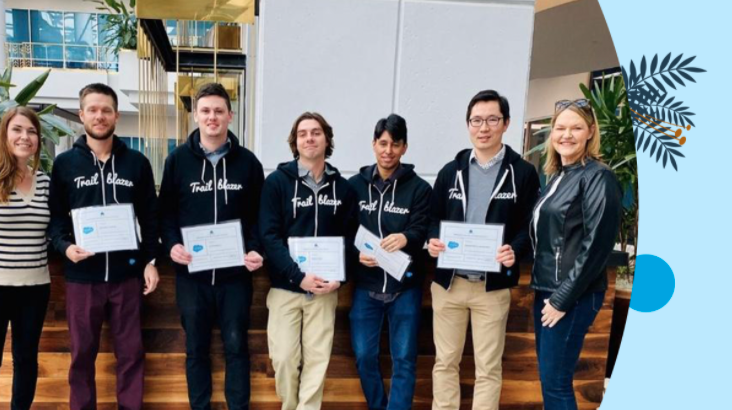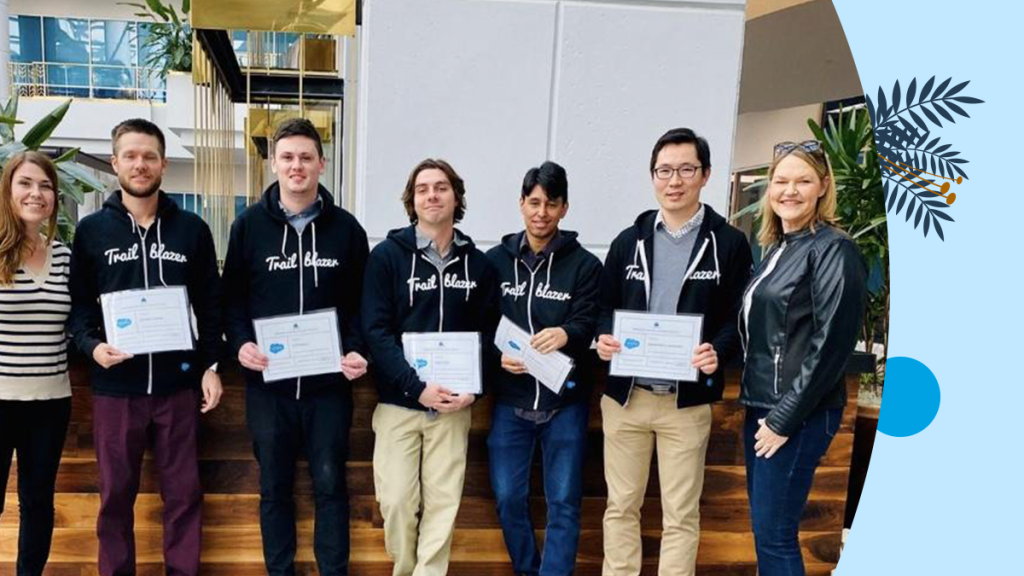Inspirational Leadership and Gender Equality: 7 Questions with Revolent’s Nabila Salem

Nabila Salem, President of Revolent, has been blazing trails in the technology industry since her days in school when she worked her first after-school job at an internet café in Spain. A substantial part of her career at a leading FTSE 250 firm, based in the UK and the US, allowed her experience aiming for ambitious targets and helping grow the company from 300 to 5,000 employees. Throughout her career, she was no stranger to the space outside her comfort zone and was always striving to learn and grow her responsibilities. Continuously challenging herself has led her to where she is today. Nabila believes “being comfortable is a dangerous place to be because it means you’re not aiming high enough.”
She joined Revolent as President in January 2020 and quickly had to meet the challenges of leading a young business through a pandemic. It forced her to be innovative, creative and think outside the box. On the other side of these challenges, Nabila found the ability to reinvent and enhance the business allowing them to become the best at what they do. Revolent is all about paving the way for the next generation of Salesforce talent and cross-training existing tech talent to become Salesforce professionals, with a key focus on helping clients diversify their tech workforce. “There has never been a better time to become a Salesforce professional – the ecosystem needs more people to continue thriving – and the key to innovation is diversity.”

A group of students, or “Revols” as Revolent Group calls them, who successfully completed the Salesforce Certification program.
Here, Nabila shares her insights on effective leadership, mentorship, balancing work and life in a pandemic, and accountability around gender equality.
Q. Was there a shift from when you saw yourself as a manager to when you saw yourself as a leader? What was the change?
Early on in my career as a manager with a small team, my focus was mainly geared towards making sure that as a team we were as efficient and effective as possible. As my team grew and my responsibilities grew, I started to focus on our long-term strategy and most importantly, making the team the best they can possibly be by empowering them along the way, teaching them new skills, and helping them grow as individuals.
I believe that all leaders should still roll up their sleeves as required, leading by example and showing the team what good looks like. However, it is also important to let the team make mistakes and learn from them. I’ve always looked to hire people that are better than me and take great pride in motivating and inspiring others to aim high, dream big and go beyond. When you start putting other people’s career progression and the business’ success before your own promotion agenda, you become a leader because leadership is not about you, it’s all about others.
Q. Countless studies show that a lack of sponsorship keeps women from advancing into leadership. What do we need to do to inspire more male sponsors and mentors for women in tech?
We need to involve more men in the conversation in order to make a real difference. The women only panels, events and networking opportunities are missing a trick. Personally, all of my mentors have been men, which hasn’t been by design, it’s just how things have turned out for me. I’ve never sought out mentors from a particular gender, it comes down to who inspires you and who you can learn from.
I know some men can feel uncomfortable mentoring women, as often our lived experiences are very different but for me a great mentor is built upon trust and having honest conversations where you both feel safe sharing your opinions. Men absolutely have a huge role to play in breaking down barriers for women and celebrating those role models who do that is a great way to inspire other men to do that same.
Q. Who are some Trailblazing Women that you admire in your life and why?
For me a Trailblazer is someone who leads by example and someone that perseveres to achieve what they want to accomplish regardless of the odds – blazing their own trails to achieve new heights. My number one role model is my mother who raised four children, was a full-time caregiver to my father, and launched a new career and her own business in her 50’s. She taught me to be resilient, to be strong, to persevere, and to not take no for an answer. If you want to achieve something, go for it – you can do it.
Q. Can you tell me what work/life integration has looked like for you during the pandemic? How has it shifted from what you’d experience typically? What’s working for you?
What’s worked well for me and my team is to work on daily/weekly tasks rather than monthly/quarterly projects because it keeps us focused and engaged. I’ve increased communication with every team member to ensure everyone stays motivated and most importantly is OK. What we mustn’t forget is that even though we are all going through the pandemic, none of us are going through the same thing. Some of us have become ill, others have lost family members and many are juggling child care and home schooling alongside their work.
It is now more important than ever to be compassionate as a leader and show that we care about our people, otherwise why would they care about us and our business? We must listen, show empathy and support, because what we do as leaders during these challenging times now will be remembered by everyone. The most important thing we can give our employees today is our time, so that’s exactly what I am doing.
It is now more important than ever to be compassionate as a leader and show that we care about our people, otherwise why would they care about us and our business? We must listen, show empathy and support, because what we do as leaders during these challenging times now will be remembered by everyone.
NABILA SALEM, PRESIDENT, REVOLENT
Q. What are some ways companies can actively support their women employees at work, especially while we work through a pandemic?
To me it is simple – offer them the flexibility they need. One solution or policy won’t suit everyone. Expecting everyone to work 9-5 is just not reasonable or effective anymore. 50% of my senior leadership team are women and two-thirds are working mothers. Empowering them and being flexible has led to better performance, because trust and respect goes both ways. People work hard for leaders that they respect and are inspired by.
Q. How can we all drive gender equality in the workplace? From people leaders, to policies, to being allies — what are some factors that you believe are important on this path to gender equality?
Equality is everyone’s responsibility and we all have our part to play, from the top down. It is crucial to educate what I call the ‘middle’ of the organization because often that’s where we fall short. You have leaders at the top advocating equality and new entrants expecting it, but unless the ‘middle’ enforce it then it won’t happen. We must begin by identifying the issues, ‘is it attraction or retention?’ ‘What are the deterrents and what can we do about it?’ Doing this helps ensure everyone understand where they are accountable for progress and move forward as one team.
Q. As we progress through our own careers, it is important to consider your personal brand in the workplace and what your brand says about you. What advice do you have for others who are thinking about shaping their personal brand and developing a reputation for excellence?
Determine your values and define what’s important to you. Think about what your passions are and what you want to be known for. Also think about who inspires you and why; then progress to identify their behaviors and traits. I was never part of the ‘in crowd’ at work as a junior, but I built a solid reputation and progressed faster than others because of the results I delivered, my hard work, determination and integrity.
Nabila is an inspiration to women in the workplace as she strives to empower her team through intentional leadership and continues to dream bigger. Some of the best advice she has ever received is, “If you aren’t failing once in a while then you aren’t aiming high enough. We must continue to challenge ourselves, aim big and go beyond – even if it means failing once in a while. Don’t ever be ashamed of trying something and failing, shame is never having tried at all.”
At Salesforce, we are committed to advancing gender equality in the workplace and in society. Click here to view the recap of our third-annual gender equality summit, Trailblazing Women, where we heard from inspiring authors, business leaders, and activists. If you’re interested in a career at Salesforce, visit our careers page.
